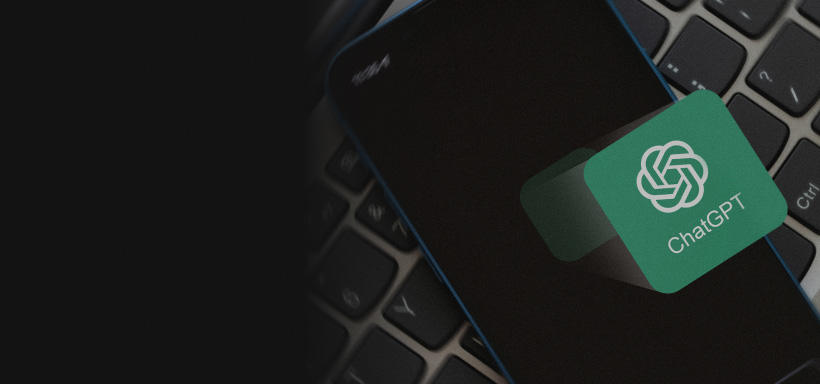Top 12 Benefits of Using ChatGPT Integration Services for Automation
 Alias Ceasar
Alias CeasarIn the ever-evolving digital landscape, automation has become a cornerstone of business efficiency, scalability, and innovation. At the forefront of this revolution is ChatGPT, OpenAI's advanced conversational AI model. Integrating ChatGPT into your workflows isn't just about adopting another tool—it’s about reimagining how businesses interact, operate, and scale.

Whether you're a startup looking to improve customer support or an enterprise aiming to streamline internal processes, ChatGPT integration services can transform your operations. In this blog, we’ll explore the top 12 benefits of integrating ChatGPT for automation and why it’s a smart move for future-ready businesses.
1. 24/7 Intelligent Customer Support
One of the most common uses of ChatGPT is in customer service. Integrated into chatbots, help desks, or voice assistants, ChatGPT can:
Handle customer queries 24/7 without human fatigue.
Provide accurate and consistent answers.
Learn from interactions to improve over time.
Why it matters: Businesses can drastically cut support costs while improving user satisfaction through faster and more reliable responses.
2. Increased Operational Efficiency
ChatGPT automates repetitive and time-consuming tasks such as:
Drafting emails or reports.
Generating responses for FAQs.
Processing internal support tickets.
By automating these tasks, employees are free to focus on more strategic initiatives.
Real-world example: An HR department using ChatGPT for answering policy-related queries saves hundreds of hours annually.
3. Seamless Integration with Business Tools
ChatGPT can be integrated with platforms like:
Slack, Microsoft Teams (for internal communication).
Zendesk, Salesforce (for customer service).
Notion, Trello (for project management).
Using APIs and middleware, ChatGPT can work within existing systems, enhancing functionality without the need for complete overhauls.
4. Personalized Customer Experiences
ChatGPT can adapt its tone and responses based on user input, history, and context, delivering a more personalized experience. With integration into CRM systems, it can:
Remember customer preferences.
Offer tailored product or service recommendations.
Follow up on past issues intelligently.
Result: Improved customer engagement and conversion rates.
5. Cost Reduction Across Departments
By automating a wide range of processes, businesses can save on:
Customer service staffing.
Marketing content creation.
IT support operations.
For example, a company integrating ChatGPT into its onboarding process could reduce HR and IT resource loads while improving onboarding speed and clarity.
6. Faster Decision Making with Real-Time Insights
With the ability to summarize reports, scan through documentation, and analyze data, ChatGPT can:
Provide real-time answers to executive questions.
Help with faster diagnostics in tech support.
Offer actionable summaries of meetings or long documents.
Use case: Executives using a ChatGPT-powered assistant to get daily performance snapshots from different departments.
7. Enhanced Scalability
Unlike human teams that grow in cost and complexity with business growth, ChatGPT-powered systems scale with ease. Whether you're handling 100 or 10,000 queries per day, AI automation ensures consistent performance without requiring proportional manpower increases.
Scalability benefits include:
Easier expansion into new markets or languages.
Streamlined multi-channel support (chat, email, social media).
Uniform training standards (AI doesn’t need retraining like humans).
8. Improved Compliance and Documentation
ChatGPT can help automate documentation, logs, and compliance tracking by:
Generating structured reports from unstructured data.
Summarizing compliance requirements.
Guiding employees through regulatory workflows.
This reduces the risk of human error and enhances audit readiness in regulated industries like finance or healthcare.
9. Accelerated Product Development Cycles
Development teams can leverage ChatGPT to:
Generate boilerplate code or documentation.
Assist with debugging and troubleshooting.
Translate user feedback into product improvements.
Example: A SaaS startup integrates ChatGPT into GitHub Issues to summarize bugs and generate test case suggestions.
10. Natural Language Interface for Complex Systems
Complex enterprise systems like ERPs and CRMs often have steep learning curves. ChatGPT can serve as a natural language layer that lets users interact using everyday language.
E.g.: Instead of navigating a complex dashboard, a user could simply ask, “What were our top 5 selling products in July?”
This democratizes data access and improves cross-departmental productivity.
11. Multilingual Support for Global Reach
ChatGPT supports dozens of languages and can be trained or tuned for industry-specific terminology. This makes it ideal for:
Serving global customers without hiring multilingual staff.
Translating internal documents.
Offering localized experiences in marketing campaigns.
This opens the door for SMBs and startups to serve international markets more effectively.
12. Continuous Learning and Customization
Through fine-tuning, prompt engineering, and integration with proprietary databases, ChatGPT can become more knowledgeable over time. Businesses can customize responses, tone, and capabilities to suit their unique needs.
With services like Retrieval-Augmented Generation (RAG), ChatGPT can:
Access updated company data.
Provide answers based on internal knowledge bases.
Become more than a chatbot—evolving into a trusted advisor.
Conclusion
ChatGPT integration services are not just about automation—they’re about augmentation. When integrated properly, they supercharge existing workflows, reduce costs, and elevate both customer and employee experiences.
Whether you’re running an eCommerce site, managing logistics, developing software, or offering healthcare services, ChatGPT can plug into your tech stack and become a catalyst for transformation.
If you're exploring automation but aren’t sure where to start, consider reaching out to a specialized ChatGPT integration partner. The future of intelligent automation isn’t coming—it’s already here.
Subscribe to my newsletter
Read articles from Alias Ceasar directly inside your inbox. Subscribe to the newsletter, and don't miss out.
Written by
